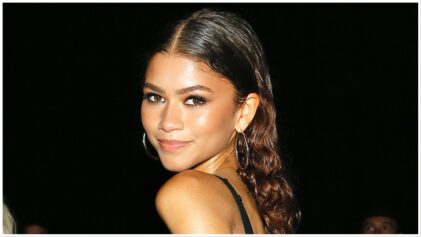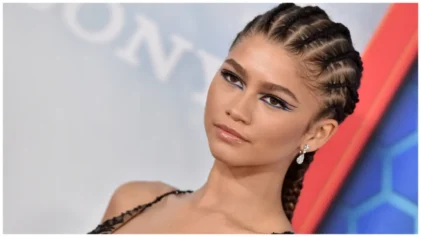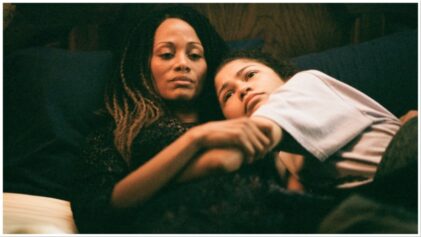“I am Hollywood’s acceptable version of a Black girl and that has to change. We’re vastly too beautiful and too interesting for me to be the only representation of that.” – #Zendaya in conversation with @BadAssBoz at #BeautyconNYC pic.twitter.com/wZaIrJm1Tw
— Danielle (@theislandiva) April 22, 2018
Continuing the trend of lighter skinned Black actresses recognizing their privilege, former Disney star Zendaya says things need to change in Hollywood.
The actress recently acknowledged that casting directors picture her as the go-to image for Black roles.
“As a Black woman — as a light-skinned Black woman — it’s important that I say, ‘Listen, I can use my privilege, my platform to show you how much beauty there is in the African-American community,’ she explained at the BeautyCon Festival in New York Sunday, April 22. “I always find it weird that … I am Hollywood’s acceptable version of a Black girl and that has to change. We’re vastly too beautiful and too interesting for me to be the only representation of that. It’s about creating those opportunities sometimes. You have to create the path.”
The remark was met with praise from many fans.
“This is why @Zendaya will continue to be a legend in my eyes as she creates her own wave, openly says her opinion on things whether it be about racial problems/politics or not and she’s so talented yet extremely beautiful and smart.👏🏽👑✊🏽😩,” a fan tweeted. “God did that!!”
“This is why I love her,” said another. “She such an inspiration to us.”
“I love that Zendaya openly discusses colorism and her privilege because many of her peers act like it’s not a thing,” someone else tweeted.
No lies she did that pic.twitter.com/Nstn4IMVHR
— King Wilshere (@YoungeArsenal) April 23, 2018
Still, one person seemed to take issue with the idea that Zendaya apparently believes she’s the sole representation of Blackness in Hollywood. And she was promptly blasted by Black women.
That’s what you got out of that?
— Hannah Drake (@HannahDrake628) April 23, 2018
Some people can still comprehend the totality of a conversation but yeah, I feel you.
— Hannah Drake (@HannahDrake628) April 23, 2018
Zendaya’s remarks follow “Grown-ish” star Yara Shahidi acknowledging how she gets more opportunities in Hollywood than her darker-skinned peers, although she said she doesn’t see herself as light-skinned.
“[I began to see that] people have constantly had to deal with things that slowly chip away at their identity,” she told Essence. “These microaggressions make you feel like you’re never enough. I realized that if I still experience it on a level of being socioeconomically privileged, then I’m not even experiencing half of it.”


